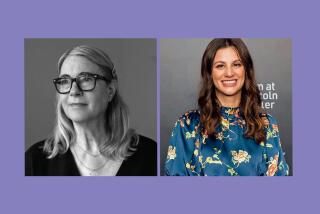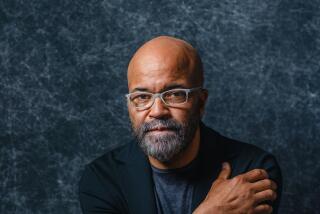One stand-up ‘coward’
- Share via
STARTING right off with its title, “The Assassination of Jesse James by the Coward Robert Ford” puts people off-balance. Does it follow the gun-slinging exploits of the legendary Wild West outlaw or does it place unexpected emphasis on the sidekick who forced his way into history?
Casey Affleck’s Oscar-nominated performance as Robert Ford, which moves from wheedling creepiness to unlikely empathy and understanding in writer-director Andrew Dominik’s adaptation, is one of the year’s true surprises -- in the sense that the film places such emphasis on what could be a secondary character and because Affleck’s portrayal is so spellbinding.
On the morning of the Oscar nominations did you do a lot of those reaction calls, talking to journalists?
I kind of slept through the moment when they’re supposed to happen. They start calling at, like, 5:30 or something, and with two kids, I just couldn’t get out of bed. I got up around 8 and then made a couple of those phone calls, whoever would still have me at that hour.
One of my favorite lines in the movie is when Sam Shepard’s character says you give him the willies. Did you realize that Bob Ford was coming across so creepy?
No, he didn’t strike me as creepy at all. That was a bit of a surprise, the way people reacted to him. I could really relate to him. I was kind of rooting for him. I like Bob. But maybe that’s just essential to playing the part. I thought he was just kind of a kid who made a mistake and had very common dreams and really can’t so much be faulted for what he wanted. I think a lot of people, if they were being honest, would say, “I want that too.” People just aren’t as adept at getting it as he was. . . .
He was just a kid who had this really romantic idea of Jesse James, looked up to him and just got his feelings hurt when he got close to him.
Why do you think people are responding so strongly to your performance?
Context, maybe. It’s a great movie, it’s well directed. It’s a great part, I guess, more than anything. So people follow the story and the story is well told, and they really feel something for the character and they sort of ascribe the success of these elements, the storytelling and the emotions they’re feeling, to my performance.
Are you and Andrew still friendly?
He’s become a really good friend, and I’ve learned a lot from him. I feel he’s been really patient with me, a little bit of a bully and also willing to let me learn.
It must be a little bittersweet that you and cinematographer Roger Deakins got a nomination, but not Andrew.
I wish that he had been recognized, because I really feel the process is not so differentiated that you can tell who is responsible for what. It doesn’t work that way. There’s some terrible work that I did that he cut out because he has good taste, and there’s times he told me what to do and gave me ideas. And I think the movie is really beautiful, I really am proud of it. I also wish I could celebrate with him and with other people from the movie, to go to all these things with. You show up and one table is everyone from “No Country for Old Men,” or another table is the cast from “The Sopranos,” all these groups of people all having fun together. And then I’m kind of at the table for orphans. It’s just not the same.
More to Read
Only good movies
Get the Indie Focus newsletter, Mark Olsen's weekly guide to the world of cinema.
You may occasionally receive promotional content from the Los Angeles Times.











